- News
- Events
- Oneg Shabbat
- Collections
- Research
- Exhibitions
- Education
- Publishing Department
- Genealogy
- About the Institute
- Bookstore

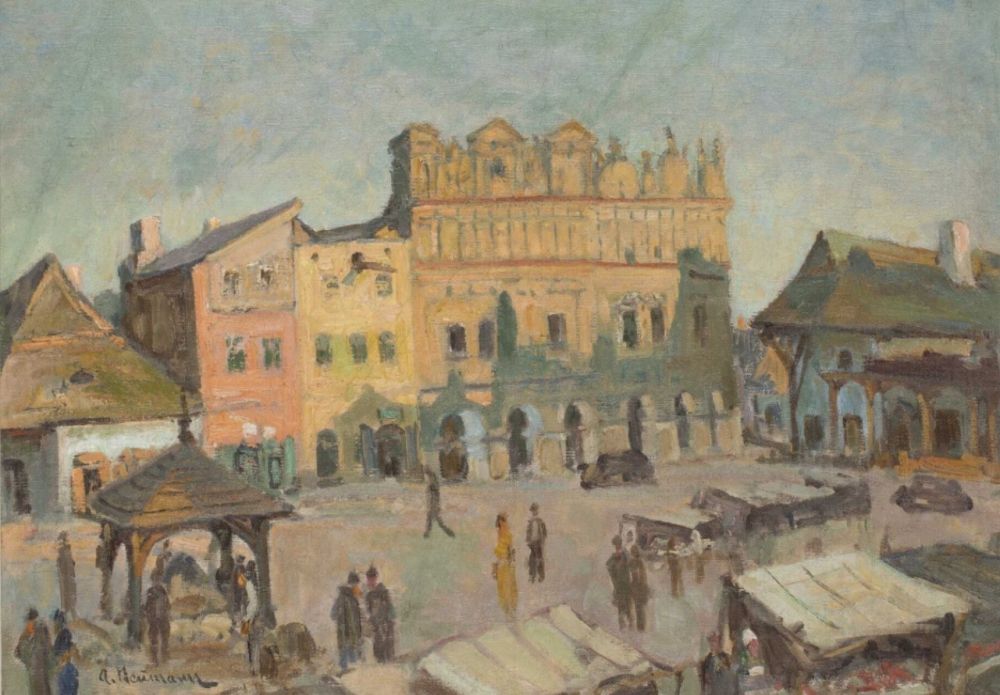
Abraham Neuman, ’Market Square in Kazimierz Dolny’, oil on canvas /
The painter
Abraham Neuman was born in Sierpc in 1873. His father was a poor forest administration clerk. Nearing 20, he moved to Warsaw and began making a living by enlarging and coloring black-and-white portrait photographs.
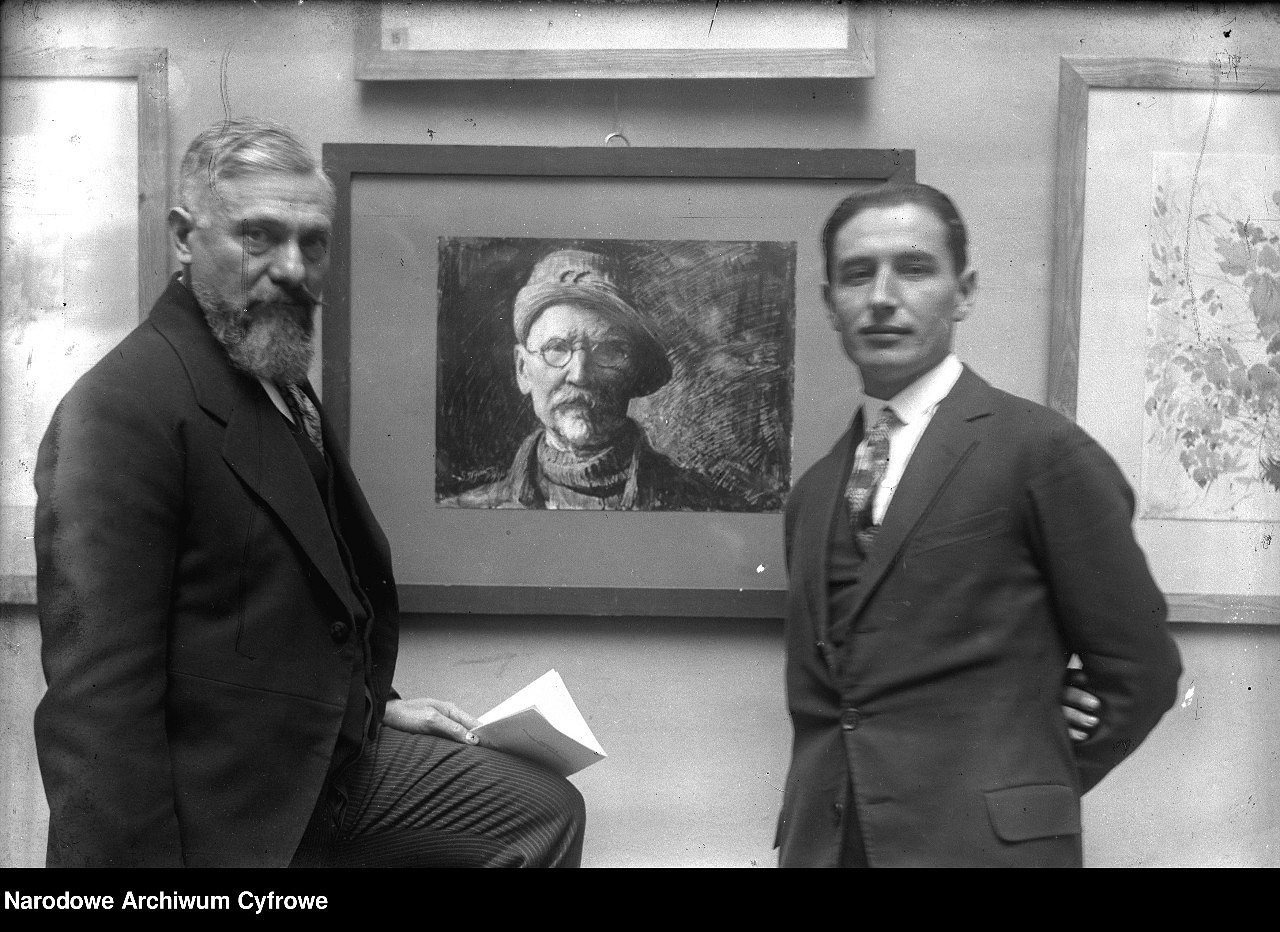
Encouraged by the well-known painter Samuel Hirszenberg, he studied at the Academy of Fine Arts in Kraków, in the studios of Jacek Malczewski, Leon Wyczółkowski and Jan Stanisławski. The last of them, an outstanding landscape artist, probably had the greatest influence on Neuman. The painter made numerous trips across Poland, Europe and the United States, in the years 1925–1927 he lectured at the Bezalel School of Art in Jerusalem. Since then, Palestinian and Oriental motifs appear in his works, which was rare among Polish painters.
Abraham Neuman most often created oil landscapes, still lifes and portraits, sometimes used lithography and woodcut. He took part in exhibitions in Krakow, Lviv, Warsaw, Paris, Vienna and Berlin. The JHI collection includes his landscapes, depicting places such as Kazimierz Dolny and streams which were one of the artist’s favorite subjects.
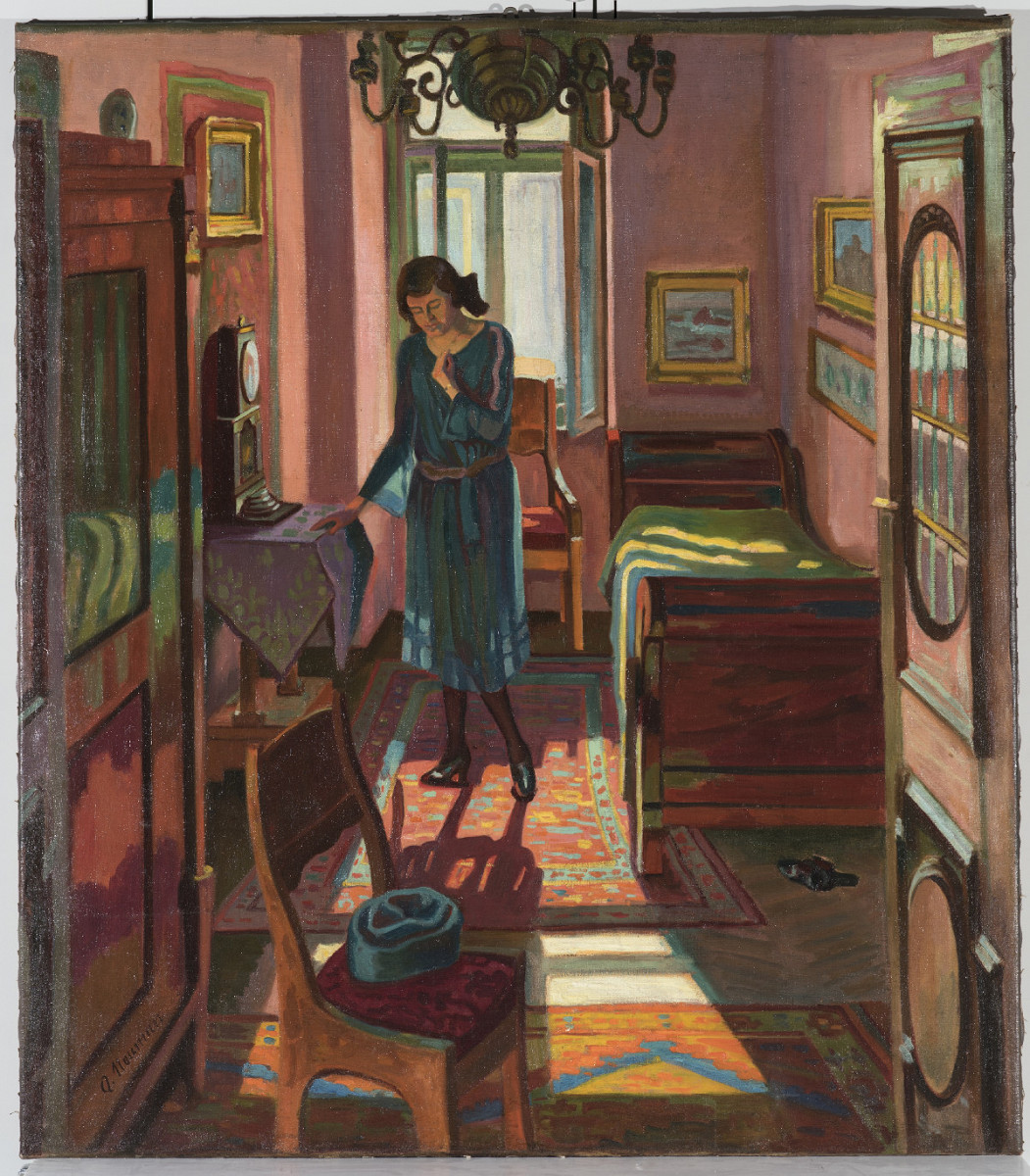
None of Neuman’s immediate family survived World War II.
The works of Abraham Neuman can be viewed on the DELET portal.
The bard
Mordechaj Gebirtig (Markus Bertig) was born in Krakow in 1877 in a poor Jewish family. He lived in an outbuilding of the house at Berka Joselewicza 5 street, earning a living as a carpenter. At the instigation of writer Abraham Rajzen, he published his first poem, The general strike (Yiddish, Der general-sztrajk) at the time of the 1905 revolution, in the Krakow journal ‘Socjaldemokrat’. Gebirtig’s works usually depicted the difficult lives of poor workers. The writers’ socialist inclinations brought him closer to the Krakow branch of the Bund party.
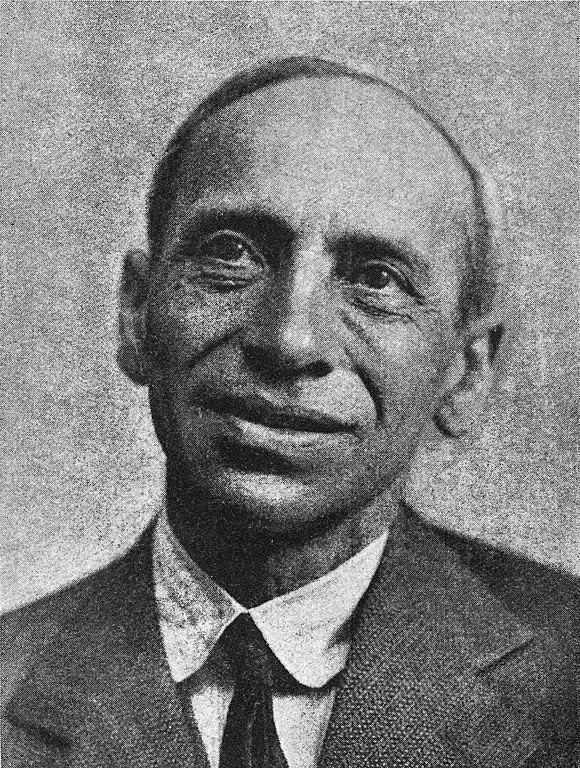
Gebirtig also became an actor and director in an amateur Jewish theater. During World War I he worked as a paramedic in a military hospital in Krakow. After the war, he was employed in the carpentry and upholstery workshop of his brother Leon, where he dealt with furniture renovation. In the early 1920s, thanks to works representing ‘Jewish workers’ urban folklore’ [1], he became recognizable as a poet, singer and bard of the Krakow’s district of Kazimierz, which for centuries was home to a large Jewish community. His songs Play, children, play (Huliet kinderlech) and Childhood years (Kinderjon) were included in the repertoire of actress Molly Picon, the star of the Yiddish film Yiddle With His Fiddle (Jidl mitn fidl, 1936). In the eyes of the public, Gebirtig became a ‘troubadour from Galicia’. His most famous song, It is Burning (S’brent undzer sztetł, brent), written in 1936, commemorated the pogrom in Przytyk, a town near Radom, during which three people were killed and several dozen injured. After the outbreak of war, this song ‘became an anthem of the ghettos’ [2] in occupied Poland.
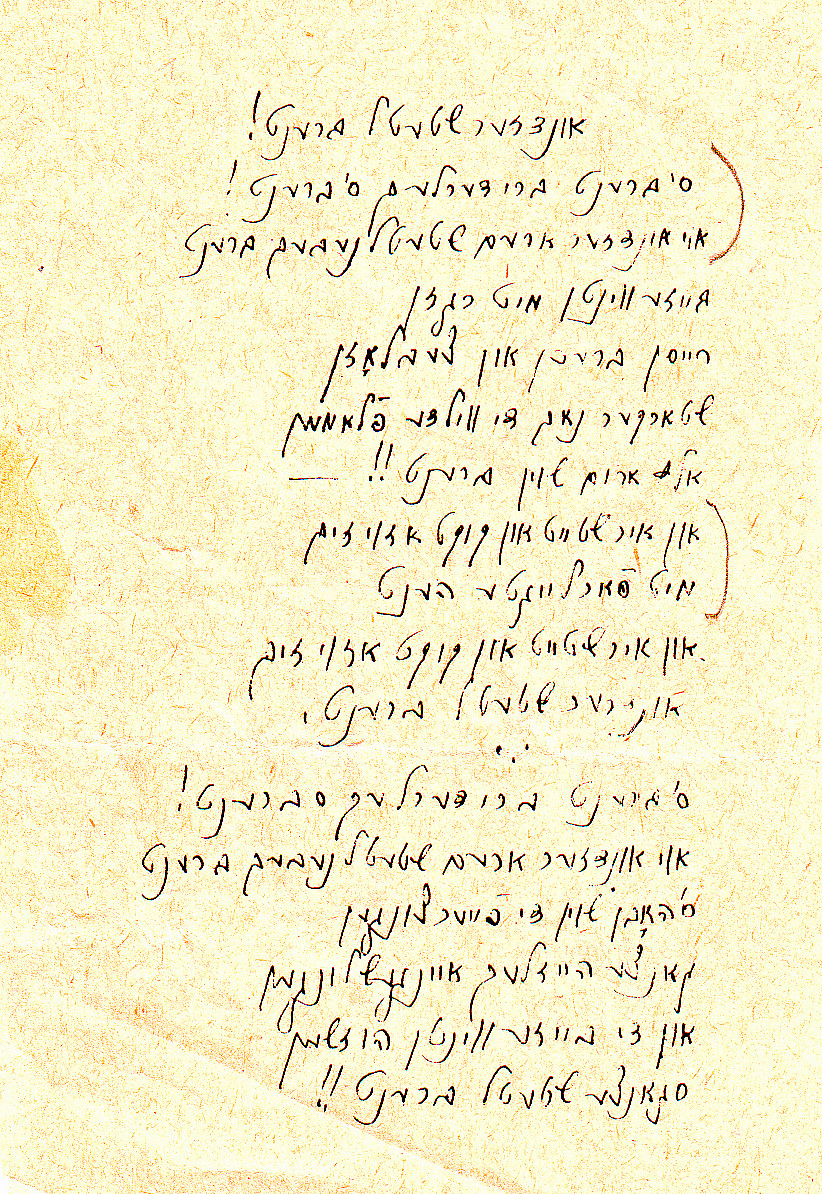
In 1940, Gebirtig was forced to move to the ghetto in Łagiewniki, and in the spring of 1942 he was again moved to the ghetto in Krakow’s Podgórze district, where he lived at Janowa Wola street. Then he made friends with the painter Abraham Neuman. Both were murdered in a street execution of elderly Jews, whom the Germans were leading to a transport to the Bełżec death camp. Gebirtig’s wife and three daughters were murdered in this death camp. No one from the poet’s immediate family survived the war. Over 100 songs and poems by Gebirtig have been preserved, many of which were translated after 1945 into Polish by Natan Gross, Jerzy Ficowski and Agnieszka Osiecka. An unknown number of songs created during the occupation were lost.
In November 2012, at the corner of Dąbrówki and Janowa Wola streets, where on 4 June 1942, among others, Neuman and Gebirtig were murdered, a commemorative plaque was placed, which is part of the Ghetto Memorial Trail 1941–1943.
On October 24, 1940, Mordechaj Gebirtig wrote a poem greeting Kazimierz, the place where he was born and lived and where he was never to return:
Mordechaj Gebirtig
Blayb gezunt mir, Kroke! (fragment)
Blayb gezunt mir, Kroke!
Blayb zhe mir gezunt.
S’vart di fur geshpant shayn fir mayn hoyz
S’traybt der wild soyne,
Vi m’traybt a hunt,
Mit akhzoriyes mikh fyn dir aroys
Farewell, my Kraków!
Farewell for me, my Kraków!
Farewell, my country.
The harnessed cart is waiting outside.
The wild enemy
Is driving me out like a dog
To destinies unknown. [3]
![logos_TaubePhilanthropies.png [7.41 KB]](/storage/image/core_files/2020/12/11/f10aa2f8473e22e198a5258cd5f57e7d/png/jhi/preview/logos_TaubePhilanthropies.png)
The project is generously supported by the Taube Philanthropies.
Footnotes:
[1] Shevah Weiss, Trubadur Galicji, ’Rzeczpospolita’, June 4, 2012.
[2] Ibid.
[3] Source: Norman Davies, Vanished Kingdoms: The Rise and Fall of States and Nations, Viking, 2012.